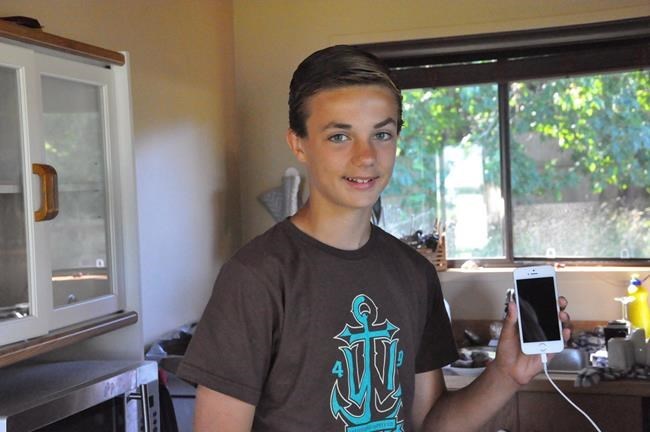Drug-addicted youth should have more treatment beds available to them and those discharged from hospital and addiction facilities should have a plan waiting for them in their school and their community, a coroner’s inquest jury said Thursday.
They are among the recommendations that came from the five-person jury at the conclusion of an eight-day inquest into the drug-overdose death of Oak Bay teen Elliot Eurchuk.
“My hope is this process and our being so open and public with our struggles with Elliot — and the family dysfunction that circles you when you have a child with substance use disorder — has opened the eyes of parents and educators and that they understand it could be the child next door,” said Rachel Staples, Elliot’s mother. “Parents can’t close their eyes to the idea it might be their child.”
Staples found Elliot, 16, unresponsive in his bed the morning of April 20, 2018. She and her husband, Brock Eurchuk, tried to revive their son with CPR and an opioid-reversing drug.
The cause of death was ruled to be an accidental drug overdose involving fentanyl, cocaine, heroin and methamphetamine. The jury ruled the death occurred at 3:30 a.m.
Elliot’s parents, who have two younger boys, petitioned for a coroner’s inquest in the midst of an opioid-deaths crisis with the hope of preventing similar deaths.
“Elliot’s name and our story is on this inquest, but 24 children are dying in this province a year in very similar circumstances — a busload of kids — and those 24 children in all probability fell through the cracks like Elliot did,” said Brock Eurchuk.
The parents pushed for secure care — a form of involuntary residential detox and treatment for youth who overdose on drugs and refuse treatment. They also wanted privacy laws, mainly the B.C. Infants Act, amended, saying as it exists it allowed their child to make his own medical decisions and prevented physicians from sharing with them possibly life-saving information. The jury did not include these views in their recommendations.
A recommendation that hospitals and addiction facilities provide necesssary information to schools and services when a child is discharged from treatment, “rather than just handing parents pamphlets,” is encouraging, said the parents.
“There’s a lot of positive in those recommendations,” said Michael Scherr, lawyer for the family and Elliot’s former baseball coach.
“I really hope the government does consider secure care and does give parents and health-care providers the tools they need to try and get on top of this epidemic that’s killing not just youth but adults as well,” Scherr said.
He said B.C. is one of the few provinces without secure care, allowing opioid-addicted children to refuse treatment. “B.C. has the dubious title of leading the country in opioid-overdose deaths. We shouldn’t be.”
Jurors recommended that the Education Ministry:
• Develop a process for early detection of mental-health and substance-use disorders within schools.
• Develop and implement a plan to transition youth from acute care and addiction-treatment facilities to schools.
• Provide education to students, parents and guardians, teachers and administrators on mental-health and substance-use disorders.
The jurors recommended the Health Ministry:
• Implement a plan to transition youth from health-care facilities back to community-based services.
• Streamline and co-ordinate access to youth residential substance-use disorder treatment beds and youth mental-health-care beds.
• Provide youth with long-term residential substance-use disorder treatment facilities throughout British Columbia.
The jurors also called on the Vancouver Island Health Authority to provide youth with long-term residential substance-use disorder treatment facilities, located on Vancouver Island.



